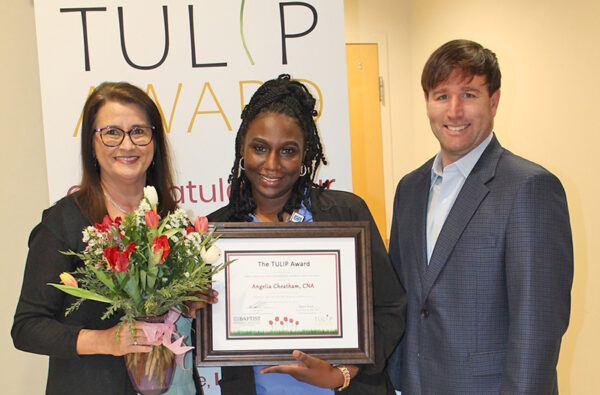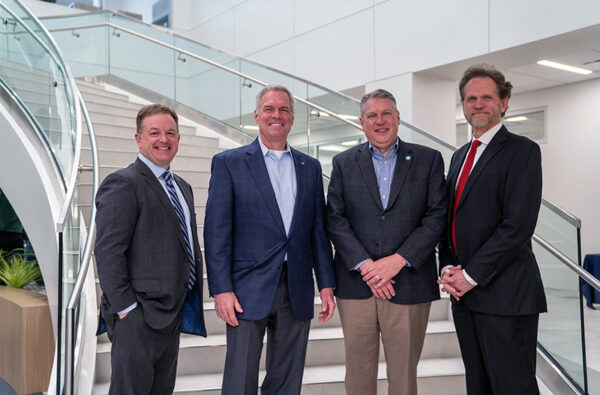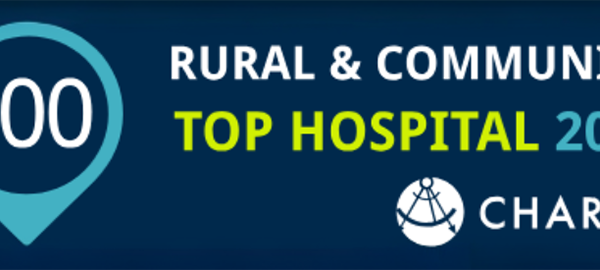The shortage of health care providers in the U.S. and around the world is a growing problem that affects everyone. It’s an issue that must be tackled on many fronts. Baptist Health Sciences University (BHSU) is working to help alleviate the shortage of health care workers with their new BaptistU HealthCORE program, which focuses on reaching out to students in middle school, high school and college to show them what they can become and help them get there.
We discussed BaptistU HealthCORE with BHSU’s Chair and Associate Professor of Biomedical Sciences, Lilian Nyindodo, PhD, MPH.
What inspired the BaptistU HealthCORE community outreach and mentoring program?
It’s something I’ve always envisioned we’d have. We are dealing with declining numbers of workers in the health care profession. I don’t want the community to have a perception that we run one program and check the box and disappear until the next year. If we truly want to make a difference, we must be consistently present in the community.
The “CORE” in “HealthCORE” stands for community outreach, one-on-one mentoring, real-life experiences and educational support. We want a comprehensive program that doesn’t just highlight Baptist University, but also the Baptist Memorial Health Care system.
The idea for BaptistU HealthCORE started last year, but COVID-19 put it on hold for things like bringing students on campus. We are revisiting that now. We’re launching BaptistU HealthCORE on April 9 during the Black Men in White Coats in-person event at BHSU.
What does BaptistU HealthCORE offer to students?
We have two big goals. One is to get students interested in health care professions. The other focus is to equip students with the tools needed to be successful getting into health care professions.
SHE Leads the Way and Black Men in White Coats are once-a-year events. We wanted more touchpoints with the community, and more ways to teach students soft skills. None of our existing programs are going away, but BaptistU HealthCORE will put them all under one umbrella. It’s a more comprehensive effort to reach students.
We’ll have workshops, university tours, hospital tours, community outreach programs, tutoring in math and sciences, entrance exam prep, mentoring, camp in the summer and a bridge program for math.
We’re also hosting hands-on weekend labs. The weekend labs will have two levels: Grades 10 and lower, and grades 11 and higher. One example of what we’ll do in these labs is DNA extraction from fruit or other safe biological objects. Students will analyze DNA and can visualize patterns. It’s exciting.
Part of BaptistU HealthCORE is our Building Success Program, which includes monthly seminars students can attend via Zoom. In the seminars, we explore strengths and weaknesses, career mapping, applying to colleges, entrance exam prep, shadowing and how to be successful in college and beyond. Building Success helps students develop those soft skills that aren’t usually taught but are needed as students go into professional programs.
We also want to help the parents of the students we’re trying to reach, especially the first-generation students. If parents didn’t attend a university, they may not know about admissions processes and ways they can help support their children with entering higher education. So, we’re also offering special workshops for parents of middle school and high school students.
As we recover from the pandemic and open more, we intend to offer real-life experiences, like shadowing, for students. Right now, there’s no infrastructure set up for students to shadow health care professionals at Baptist. We hope to show students what it looks like to work as a cardiologist, for example. We want to set up a pilot program in Memphis that allows doctors to agree to shadowing and students to sign up, and then ultimately extend that to all Baptist hospitals.
One-on-one mentoring is also an important component of BaptistU HealthCORE. The mentoring program will provide a safe and focused environment that will impact students by building relationships that steer them on a positive path toward learning and growing as people. Mentors will be solicited from the Baptist system and the community.
How will you reach students with the BaptistU HealthCORE program?
We have a landing page on the BaptistU website that students can visit to sign up for various programs offered under BaptistU HealthCORE: https://www.baptistu.edu/BaptistUHealthCORE.
We’re trying to reach Tennessee, Arkansas and Mississippi middle school, high school and college students in areas with a Baptist Memorial hospital. But if someone wants to invite a friend from another state, we allow that, too!
Research shows kids lose interest in sciences in middle school. We want to target them early, but still reach out to high school and college students. The program will help equip students with tools needed to get to a health profession program and help them maintain that to get into medical school.
If students don’t want to go to medical school, we have programs to get them into health care earlier. We have four-year programs that allow students to get to a white-coats profession quickly. Examples are Health Administration, Medical Laboratory Science, Respiratory Care, Medical Radiography and Radiation Therapy, Nuclear Medicine and Neurodiagnostic Technology, among others. Students need to be exposed to the other white-coat professions in addition to nursing and medical doctors.
Seeing is believing. Most people tend to choose careers that they have seen in action. We encourage white-coat professionals to go out into the community and show the young ones that this is an exciting field to be in! Being a mentor is one way to give back to the community.
Anything you’d like to add?
When there’s a problem in the community, we must get together and fix the problem. It takes a village. Literally, it took a village to raise me. That’s why I’m very passionate about the community. Somebody invested time in me and showed me the path that I took. I was able to see what I wanted to be many years ago. I want these kids to see this is a possibility. This is a person who looks like me. This is a person who’s done this, so why can’t I?
I have a great team. They are very passionate about the community, and they want this program to succeed.






